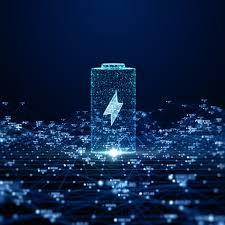
Breaking News
 $90 TRAP: JM Bullion "Down" & LBMA Offline While Silver Crashes (Don't Be Fooled)
$90 TRAP: JM Bullion "Down" & LBMA Offline While Silver Crashes (Don't Be Fooled)
SEMI-NEWS/SEMI-SATIRE: February 1, 2026 Edition
 Interview 1999 – Gold Rush as Dollar Crashes (NWNW #617)
Interview 1999 – Gold Rush as Dollar Crashes (NWNW #617)
Top Tech News
 The smartphone just fired a warning shot at the camera industry.
The smartphone just fired a warning shot at the camera industry.
 A revolutionary breakthrough in dental science is changing how we fight tooth decay
A revolutionary breakthrough in dental science is changing how we fight tooth decay
 Docan Energy "Panda": 32kWh for $2,530!
Docan Energy "Panda": 32kWh for $2,530!
 Rugged phone with multi-day battery life doubles as a 1080p projector
Rugged phone with multi-day battery life doubles as a 1080p projector
 4 Sisters Invent Electric Tractor with Mom and Dad and it's Selling in 5 Countries
4 Sisters Invent Electric Tractor with Mom and Dad and it's Selling in 5 Countries
 Lab–grown LIFE takes a major step forward – as scientists use AI to create a virus never seen be
Lab–grown LIFE takes a major step forward – as scientists use AI to create a virus never seen be
 New Electric 'Donut Motor' Makes 856 HP but Weighs Just 88 Pounds
New Electric 'Donut Motor' Makes 856 HP but Weighs Just 88 Pounds
 Donut Lab Says It Cracked Solid-State Batteries. Experts Have Questions.
Donut Lab Says It Cracked Solid-State Batteries. Experts Have Questions.
 Researchers who discovered the master switch that prevents the human immune system...
Researchers who discovered the master switch that prevents the human immune system...
Chinese scientists create 'water battery' that can hold much more energy than lithium cells:

Interestingly, the researchers say that these new batteries will be twice as energy-dense as traditional lithium-ion options. This holds the potential to revolutionize the electric vehicle industry.
Moreover, aqueous batteries use water as the solvent for electrolytes, enhancing their safety. Traditional non-aqueous lithium-ion batteries have a high energy density, but their safety is compromised due to the flammable organic electrolytes, a component that allows the battery to charge and discharge, they utilize.
Lower energy density
However, aqueous batteries generally have a lower energy density due to the limited solubility of the electrolyte and low battery voltage.

 The day of the tactical laser weapon arrives
The day of the tactical laser weapon arrives

